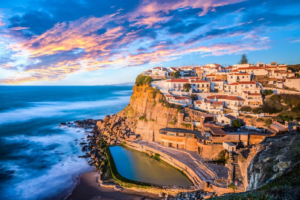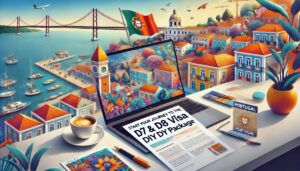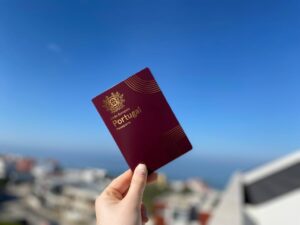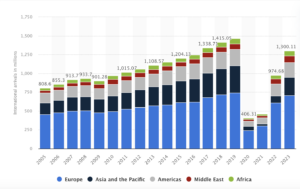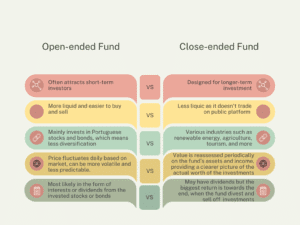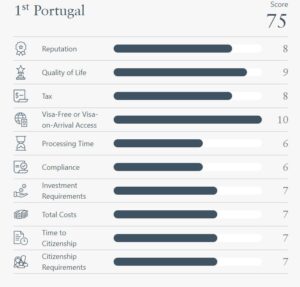In recent years, Portugal has become a magnet for digital nomads from around the globe. From freelancers to tech professionals, more remote workers are choosing Portugal not just for a visit but as a place to live, work, and thrive. Lisbon, Porto, Madeira, and Lagos have all seen vibrant nomad communities take root, supported by a strong expat network, reliable infrastructure, and a welcoming vibe that makes it easy to settle in.
Why Work in Portugal?
Portugal offers a rare combination of lifestyle perks:
- Affordability: Compared to many Western European countries, living costs in Portugal are still relatively low, especially when it comes to housing and dining.
- Safety: It consistently ranks as one of the safest countries in the world.
- Culture & Nature: Whether you’re into medieval towns, Atlantic beaches, or world-class food and wine — Portugal delivers.
- Quality of Life: Great weather, relaxed pace, and good public services make for a healthy work-life balance.
Portugal’s Proactive Remote Work Policies
Recognizing the shift in global work habits, the Portuguese government launched the Digital Nomad Visa in 2022. This visa allows remote workers from non-EU countries to live and work legally in Portugal, provided they meet minimum income and employment requirements. The policy not only reflects Portugal’s adaptability in a post-pandemic world but also signals its long-term commitment to attracting global talent.
Why Portugal is a Digital Nomad Haven
Quality of Life
Portugal consistently ranks high for its exceptional quality of life. With a mild Mediterranean climate, stunning coastlines, and a relaxed pace of life, it’s an ideal setting for remote workers seeking balance. The country’s safety, friendly communities, and efficient public services further enhance its appeal.
Affordable Cost of Living
Compared to many Western European countries, Portugal offers a relatively low cost of living. Expenses for housing, food, and transportation are more affordable, allowing digital nomads to enjoy a comfortable lifestyle without breaking the bank.
Strong Digital Infrastructure
Portugal boasts robust digital infrastructure, with widespread high-speed internet access and a growing number of coworking spaces. Cities like Lisbon and Porto are equipped with modern amenities, making it easy for remote workers to stay connected and productive.
Cultural Richness
Portugal’s rich cultural heritage is evident in its historic architecture, vibrant arts scene, and diverse culinary traditions. From the soulful sounds of Fado music to the colorful festivals celebrated throughout the year, there’s always something to inspire and engage. The country’s welcoming atmosphere makes it easy for newcomers to immerse themselves in the local culture.
Working Culture in Portugal
Healthy Work-Life Balance
Portugal places a strong emphasis on maintaining a healthy work-life balance. The standard working week is 40 hours, with a maximum of 8 hours per day. Employees are entitled to a minimum of 22 paid vacation days annually, allowing ample time for rest and personal pursuits.
In a progressive move to support workers’ well-being, Portugal enacted legislation in 2021 that prohibits employers from contacting employees outside of working hours. This “Right to Disconnect” law aims to prevent the intrusion of work into personal time, promoting a clearer separation between professional and private life.
Additionally, Portugal has experimented with a government-backed four-day workweek. Initial trials yielded promising results, with reductions in employee anxiety and fatigue, as well as improvements in overall work-life balance.
Emphasis on Personal Relationships
Portuguese workplace culture highly values personal relationships and interpersonal connections. Building trust and rapport is considered essential for effective collaboration. Social interactions, such as sharing meals or informal conversations, play a significant role in fostering strong professional bonds.
This emphasis on relationships extends to communication styles, which tend to be more indirect and context-sensitive. Understanding and respecting these nuances can greatly enhance workplace interactions and integration into the local professional environment.
Workplace Etiquette
Professional etiquette in Portugal leans towards formality. Greetings typically involve a firm handshake, and it’s customary to address colleagues using their titles and surnames, especially in initial meetings.
Punctuality is appreciated, though there is a cultural tolerance for slight delays. Being up to 15 minutes late is generally acceptable, but it’s courteous to inform if running behind schedule.
Dress codes in the Portuguese workplace are conservative and elegant. Employees are expected to present themselves neatly, with an emphasis on quality attire. Even in less formal settings, maintaining a polished appearance is important.
Portugal’s Digital Nomad Visa (D8)
What is the D8 Visa?
Portugal’s Digital Nomad Visa, officially known as the D8 Visa, is designed for non-EU/EEA remote workers and freelancers who wish to live and work in Portugal while maintaining employment with companies outside the country. This visa allows for an initial stay of up to one year, with the possibility of renewal. Holders can also travel freely within the Schengen Area for up to 90 days within a 180-day period. Additionally, the D8 Visa provides access to certain public services in Portugal, including healthcare and public transportation, and enables family reunification under specific conditions.
Eligibility Requirements
To qualify for the D8 Visa, applicants must meet the following criteria:
- Age: 18 years or older.
- Citizenship: Non-EU/EEA citizen.
- Employment: Engaged in remote work as an employee, freelancer, or entrepreneur with clients or companies outside Portugal.
- Income: Minimum monthly income of €3,480 for the long-term residency visa.
- Accommodation: Proof of accommodation in Portugal, either through a rental agreement or property ownership.
- Criminal Record: Clean criminal record certificate from the country of residence.
Application Process
- Gather Required Documents: Collect all necessary documentation, including proof of income, accommodation, and health insurance.
- Submit Application: Apply at the Portuguese consulate or embassy in your home country.
- Attend Visa Appointment: Schedule and attend an appointment to submit biometrics and complete the application process.
- Receive Visa: Upon approval, receive the D8 Visa, which allows entry into Portugal.
- Apply for Residence Permit: Once in Portugal, schedule an appointment with AIMA (formerly SEF) to obtain your residence permit.
Required Documentation
Applicants need to provide the following documents:
- Valid Passport: With at least six months of validity.
- Proof of Income: Bank statements or contracts demonstrating the required monthly income.
- Accommodation Details: Rental agreement or property deed in Portugal.
- Health Insurance: Coverage is valid in Portugal.
- Criminal Record Certificate: From the country of residence.
- Motivation Letter: Explaining the purpose of the stay in Portugal.
- NIF Number: Portuguese tax identification number.
- Portuguese Bank Account: Proof of a bank account in Portugal.
Processing Times
- Initial Visa Application: Approximately 60 days for review and approval.
- Residence Permit Appointment: Scheduling can take up to four months after arrival in Portugal.
- Residence Permit Issuance: Typically delivered within 90 days after the appointment.
Cost Breakdown
- Visa Application Fee: €90 per applicant.
- Residence Permit Fee: €170 per applicant.
- Health Insurance: Varies; typically starts at €20 per month.
- Accommodation Costs: Dependent on location and type of housing.
- Additional Costs: May include translation of documents, legal assistance, and travel expenses.
Want to apply for a Portugal D Visa by yourself? Explore our D Visa DIY Package for comprehensive guidance and resources.
Top Digital Nomad Cities in Portugal
Lisbon: The Vibrant Capital
Job Opportunities: Lisbon stands as Portugal’s primary hub for digital nomads, offering a plethora of coworking spaces, networking events, and a thriving startup scene. The city’s robust digital infrastructure and international community make it an ideal location for remote professionals.
Cost of Living: Living in Lisbon can be relatively expensive compared to other Portuguese cities. Monthly expenses for a single digital nomad range from €1,500 to €2,000, with rent for a one-bedroom apartment in the city center averaging around €1,334.
Algarve: The Sunny Retreat
Job Opportunities: The Algarve region, particularly cities like Lagos and Faro, has become increasingly popular among digital nomads seeking a relaxed lifestyle. While the job market is less dynamic than Lisbon’s, the region offers a growing number of coworking spaces and a supportive community for remote workers.
Cost of Living: The Algarve boasts a lower cost of living compared to Lisbon. Rent for a one-bedroom apartment in the city center typically ranges from €800 to €1,200, and overall monthly expenses for a digital nomad can be around €1,200 to €1,800.
Porto: The Cultural Gem
Job Opportunities: Porto offers a blend of traditional charm and modern amenities, attracting digital nomads with its rich culture and growing tech scene. The city provides various coworking spaces and a welcoming environment for remote professionals.
Cost of Living: Porto is generally more affordable than Lisbon. Monthly expenses for a digital nomad range from €1,200 to €1,800, with rent for a one-bedroom apartment in the city center averaging around €1,000.
Why Portugal is the Perfect Base for Digital Nomads
Working remotely in Portugal isn’t just about beautiful views and good weather — though you’ll find plenty of both. It’s about choosing a lifestyle that balances professional productivity with personal well-being.
From modern coworking spaces in Lisbon, to the relaxed pace of the Algarve, and the cultural charm of Porto, Portugal offers something unique for every digital nomad. Add in a relatively low cost of living, high safety standards, reliable infrastructure, and a welcoming visa program like the D8 — and you’ve got one of the most attractive destinations for remote work in the world.
Portugal isn’t just where you work. It’s where you live well.
At The Golden Portugal, we specialize in helping people relocate to Portugal through investment and immigration programs. For more in-depth details, explore our guides on the Portugal Golden Visa and D7 & D8 Visa options or feel free to book your free 30-minute consultation call here.












